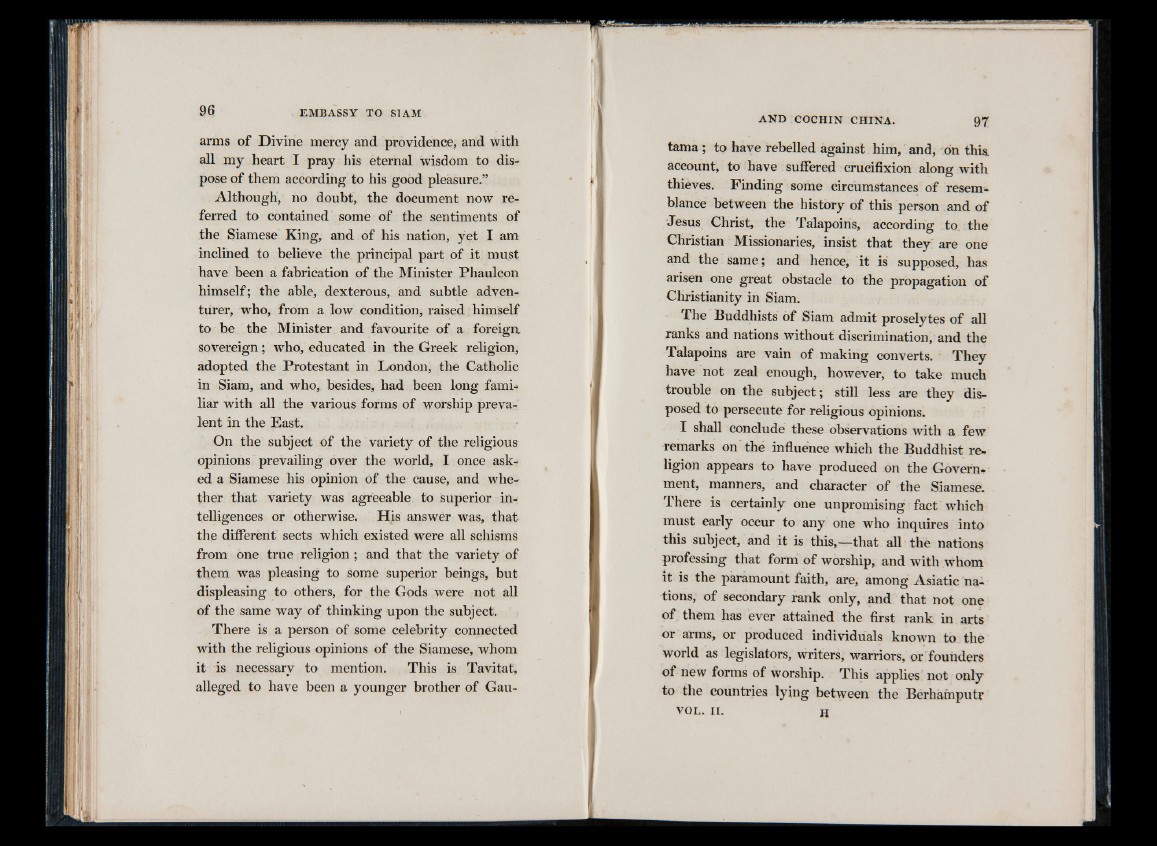
arms of Divine mercy and providence, and with
all my heart I pray his eternal wisdom to dispose
of them according to his good pleasure.”
Although, no doubt, the document now referred
to contained some of the sentiments of
the Siamese King, and of his nation, yet I am
inclined to believe the principal part of it must
have been a fabrication of the Minister Phaulcon
himself; the able, dexterous, and subtle adventurer,
who, from a low condition, raised himself
to be the Minister and favourite of a foreign,
sovereign; who, educated in the Greek religion,
adopted the Protestant in London, the Catholic
in Siam, and who, besides, had been long familiar
with all the various forms of worship prevalent
in the East.
On the subject of the variety of the religious
opinions prevailing over the world, I once asked
a Siamese his opinion of the cause, and whether
that variety was agreeable to superior intelligences
or otherwise. His answer was, that
the different sects which existed were all schisms
from one true religion ; and that the variety of
them was pleasing to some superior beings, but
displeasing to others, for the Gods were not all
of the same way of thinking upon the subject.
There is a person of some celebrity connected
with the religious opinions of the Siamese, whom
it is necessary to mention. This is Tavitat,
alleged to have been a younger brother of Gautama
; to have rebelled against him, and, on this,
account, to have suffered crucifixion along with
thieves. Finding some circumstances of resemblance
between the history of this person and of
Jesus Christ, the Talapoins, according to the
Christian Missionaries, insist that they are one
and the same; and hence, it is supposed, has
arisen one great obstacle to the propagation of
Christianity in Siam.
The Buddhists of Siam admit proselytes of all
ranks and nations without discrimination, and the
Talapoins are vain of making converts. They
have not zeal enough, however, to take much
trouble on the subject; still less are they disposed
to persecute for religious opinions.
I shall conclude these observations with a few
remarks on the influence which the Buddhist religion
appears to have produced on the Government,
manners, and character of the Siamese.
There is certainly one unpromising fact which
must early occur to any one who inquires into
this subject, and it is this,—that all the nations
professing that formi of worship, and with whom
it is the paramount faith, are, among Asiatic nations,
of secondary rank only, and that not one
of them has ever attained the first rank in arts
or arms, or produced individuals known to the
world as legislators, writers, warriors, or founders
of new forms of worship. This applies not only
to the countries lying between the Berhamputv
VOL. II. h